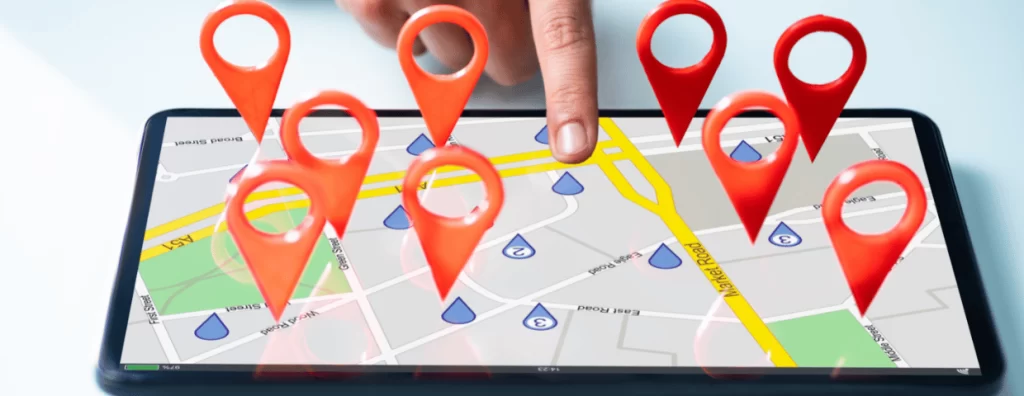Local SEO Keyword Research: Your Ultimate Guide
In today’s digital landscape, local SEO Keyword Research is a game changer for businesses looking to attract customers from their neighborhoods. If you run a local coffee shop, a hair salon, or any service-based business, mastering SEO can dramatically increase your visibility to potential customers who are actively searching for services just like yours. This ultimate guide will walk you through everything you need to know about local SEO keyword research, from identifying the right keywords to optimizing your website for local searches.
Table of Contents
– Key Highlights
– Why Is Local SEO Important?
– How to Do Local Keyword Research
1. Find Your Industry Keywords
2. Use Keyword Modifiers
3. Add Your Location Terms
4. Consider Search Intent
– Using Competitors for Your Local Keyword Research
– The Best Local SEO Keyword Research Tools
– FAQs
– Conclusion
Key Highlights:
– Local SEO is essential for businesses that serve specific geographic areas, ensuring they rank higher in local search results.
– Conducting effective keyword research allows you to connect with local customers actively searching for your products or services.
– Tools like Google Keyword Planner, Ubersuggest, and SEMrush make the keyword research process easier and more actionable.
– Understanding and optimizing for search intent ensures that your keywords align with what potential customers are looking for.
– Analyzing your competitors can reveal untapped keyword opportunities and give you an edge in local search rankings.
Why Is Local SEO Important?
Imagine you’re in a new city and craving a delicious slice of pizza. You pull out your phone and type “best pizza near me.” The results that pop up are businesses that have optimized their websites for local searches. This is the power of local SEO.

It is all about making sure your business gets found by people looking for services in their area. Here are some reasons why it matters:
- Increased Visibility: It ensures your business appears in search results when potential customers are looking for services nearby.
- Targeted Traffic: It attracts users who are actively searching for local services, increasing the likelihood of conversions.
- Higher Click-Through Rates: Businesses that rank higher in local searches tend to receive more clicks, leading to more website visits.
- Enhanced Google Maps Presence: It helps your business show up in Google Maps results, making it easier for customers to find you.
- Cost-Effective Marketing: Compared to traditional advertising, it provides a more cost-effective way to reach your target audience.
- Builds Trust and Credibility: Ranking well in local searches can enhance your business’s reputation and trustworthiness among potential customers.
- Improved User Experience: Local SEO strategies often lead to better website optimization and usability, providing a more enjoyable experience for visitors.
- Competitor Advantage: It helps you stand out from competitors, especially if they are not optimizing their online presence effectively.
- Increased Online Reviews: It encourages customers to leave reviews, which can further enhance your visibility and reputation.
In a world where many consumers look for local businesses online, mastering local SEO is crucial for success.
How to Do Local Keyword Research
At the heart of every successful local SEO strategy is keyword research. This process involves identifying the search terms that your potential customers are using to find businesses like yours. Here’s how you can conduct effective local keyword research.
1. Find Your Industry Keywords
Start by listing the main keywords that describe your business. If you own a hair salon, for example, your industry keywords might include:
– “hair salon”
– “haircuts”
– “hairstyling”
– “barber shop”
Using keyword research tools like Google Keyword Planner, Google Trends or Ubersuggest can help you generate a more extensive list of relevant keywords.
2. Use Keyword Modifiers
Next, enhance your keywords with modifiers. These are words that add detail and specificity to your searches. Think about terms that describe the quality or type of service you offer. For example:
– “best hair salon”
– “affordable haircuts”
– “professional hairstyling”
By adding modifiers, you make your keywords more targeted, which can attract a more specific audience.
3. Add Your Location Terms
Now it’s time to combine your industry keywords with location-based terms. This is critical for local SEO. For instance:
– “best hair salon in Kathmandu”
– “affordable haircuts in Pokhara”
– “barber shop near me in Chitwan”
Using your city, neighborhood, or even nearby landmarks helps Google match your business with local searches.
4. Consider Search Intent
Understanding search intent is key to creating effective local keywords. Search intent refers to the reason behind a user’s query. Generally, there are three types of search intent:
– Navigational: The user is looking for a specific business (e.g., “Starbucks near me”).
– Informational: The user seeks information about a service or product (e.g., “how to style curly hair”).
– Transactional: The user intends to make a purchase or book a service (e.g., “schedule a haircut in Pokhara”).
By aligning your keywords with search intent, you can target customers at different stages of their buying journey, increasing your chances of converting them into clients.
Using Competitors for Your Local Keyword Research
Don’t overlook the power of competitor analysis in your local SEO strategy. By checking out what keywords your competitors are using, you can discover new opportunities and insights.
Here’s how to do it:
– Use tools like Ahrefs or SEMrush to identify the keywords your competitors are ranking for.
– Look for gaps in their strategy that you can capitalize on—keywords they aren’t targeting that you could.
– Analyze their content to see how they incorporate local keywords and optimize their sites.
Learning from your competitors can give you a valuable edge in local search rankings.
The Best Local SEO Keyword Research Tools
Finding the right tools can make local keyword research much easier. Here are some of the best options to consider:
1. Google Keyword Planner
A free tool that helps you discover new keywords related to your business. It provides insights into search volume and competition, making it easier to choose the best keywords.
2. Ubersuggest
Ubersuggest offers keyword suggestions, search volume data, and insights into how difficult it is to rank for a specific keyword. It also allows you to analyze your competitors.
3. Google Trends
This tool helps you see how the popularity of certain keywords changes over time, making it useful for discovering seasonal trends.
4. SEMrush
SEMrush is a comprehensive SEO tool that offers in-depth keyword research, competitor analysis, and rank tracking, ideal for businesses targeting local keywords.
5. Moz Local
Moz Local focuses on improving your local SEO by helping you optimize your local listings and track your rankings.
Using these tools can simplify your keyword research and help you discover the most effective keywords for your business.
FAQs
Q1: What is local SEO?
Local SEO is the practice of optimizing your online presence to attract more business from relevant local searches. This includes optimizing your website, Google My Business listing, and local citations.
Q2: Why is local SEO important for my business?
Local SEO helps increase your visibility in local search results, drives targeted traffic to your website, boosts foot traffic to your physical location, and improves your overall online reputation.
Q3: How do I optimize my Google My Business listing?
To optimize your Google My Business listing, ensure your business name, address, and phone number (NAP) are accurate and consistent. Add photos, choose the right categories, and encourage customers to leave reviews.
Q4: What are local citations?
Local citations are online mentions of your business’s name, address, and phone number on directories, websites, and social media. They help improve your local search rankings and credibility.
Q5: How can I find the right local keywords?
Use keyword research tools like Google Keyword Planner, Ubersuggest, or SEMrush to identify relevant local keywords. Look for terms that include your industry and location.
Q6: What role do online reviews play in local SEO?
Online reviews are crucial for local SEO as they influence your rankings in search results and build trust with potential customers. Encouraging satisfied customers to leave positive reviews can enhance your visibility.
Q7: How often should I update my local SEO strategy?
Regularly review and update your local SEO strategy, ideally every few months. This helps you stay aligned with search trends and adjust to changes in your business or competition.
Q8: Can social media impact local SEO?
Yes, social media can impact local SEO by increasing your online visibility and engagement. Sharing content and interacting with your local community can drive traffic to your website.
Q9: Is mobile optimization important for local SEO?
Absolutely! A mobile-friendly website is essential, as many local searches are conducted on mobile devices. Ensure your site is responsive and provides a good user experience on smartphones and tablets.
Q10: How long does it take to see results from local SEO?
Results from local SEO can vary, but it typically takes several months to see significant changes in rankings and traffic. Consistent effort and ongoing optimization are key to long-term success.
Conclusion
Effective local SEO keyword research is the key to improving your local search rankings and attracting more customers to your business. By focusing on industry-specific keywords, adding location terms, and considering search intent, you can create a local SEO strategy that drives results.
Utilize tools like Google Keyword Planner, Ubersuggest, and SEMrush to refine your keyword strategy, and don’t forget to analyze your competitors to stay ahead. By continuously optimizing your local SEO efforts, you’ll see an increase in traffic, leads, and sales from local customers.
Start implementing these local SEO keyword research techniques today, and watch your business grow!





